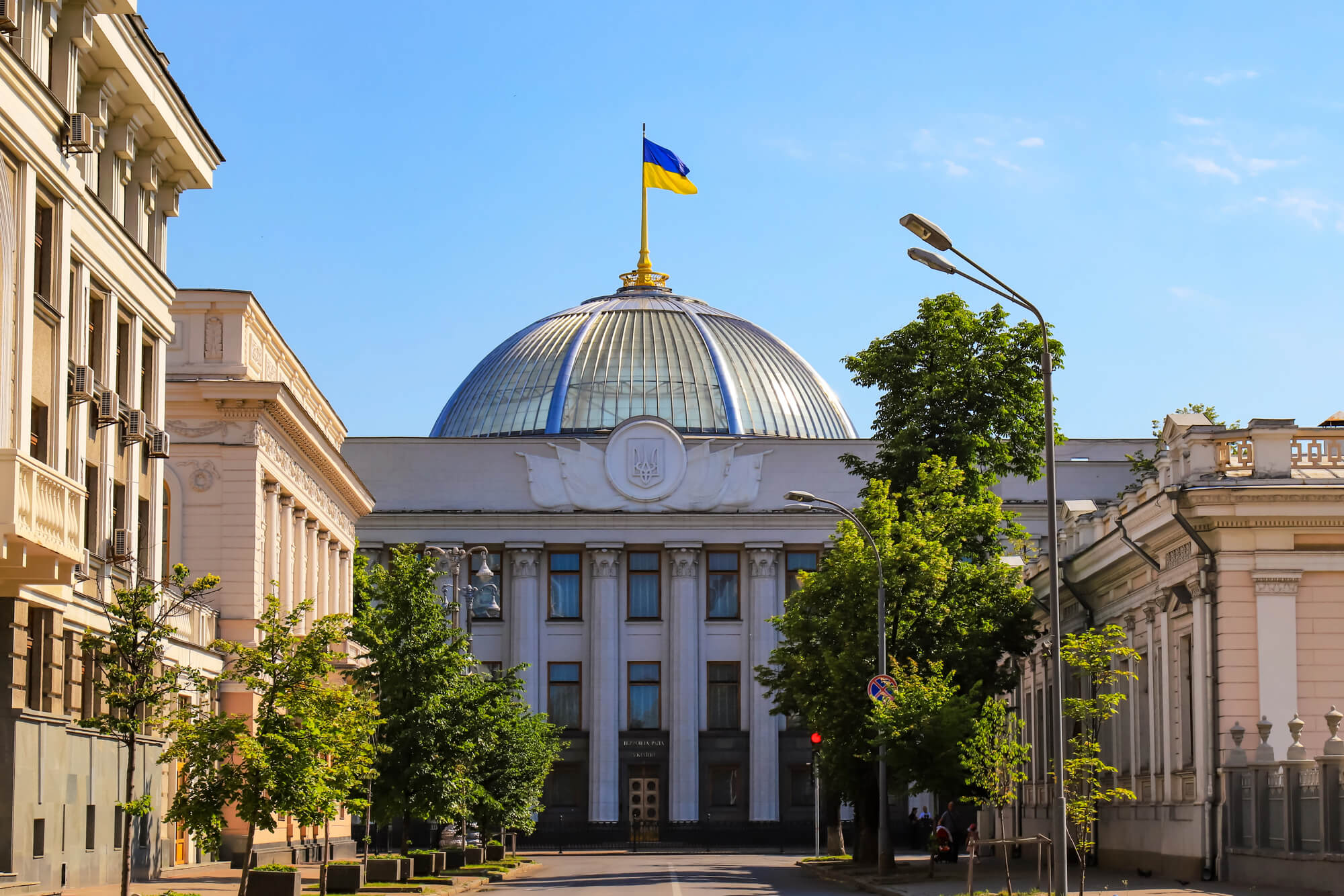John Herbst servedfor thirty-one years as a Foreign Service Officer in the US Department of State, retiring at the rank of Career-Minister. For the most of his career he was involved in CIS and Middle East issues. He was a US Ambassador to Ukraine from 2003 to 2006. Currently John Herbst is the Director of Dinu Patriciu Eurasia Center of the Atlantic Council, an influential think tank. You can listen to this speech at the JCE Conference Online broadcast, Day 2, Stream 1, 9:29.
I’m going to be speaking at a relatively high level of abstraction. The title for this event is “Is Ukraine going to Europe?” And I think that’s a mistitle. I think the question is “Is Ukraine going towards the future?”
The notion of Ukraine going to Europe as opposed to Ukraine going to Russia is one more example of a rather naïve West accepting the Kremlin terms of the current crisis. Because of the values driving Ukraine right now, the values that drove the Euromaidan, are values that are necessary for societies to succeed in the next 20, 30, 100 years. This is not an issue of Russian versus European values. This is an issue of values that will nurture a society that will develop a modern economy and provide a good life for its citizens.
We live in one of those critical turning points in history in terms of socio-economic development. We are (or maybe not so much, but will be in 20-50-100 years from now) in an advanced stage of the information age. We had the Neolithic revolution, the agricultural revolution, after that we had the industrial revolution, and now we have the information age revolution. In the late 19th century and in the early 20th century, the concentration of industries gave an advantage to either totalitarians or authoritarians who wanted to mobilize their society. And you saw these dreadful states emerge – Nazi Germany, various communist states.
The events of the past more than 30 years, the evolution of the computer, the invention of the Internet, now social media – have all produced a very different phenomenon: the individual citizens as opposed to the centers of power are being empowered. And this age more than any other brings home effect that has always been true – the key to progress is unlocking human mind, and unlocking human mind requires letting people alone so that they can develop their talents. And the way you succeed today and for the foreseeable future is by doing precisely that – and at the same time, because they are related – integrating globally.
It is absolutely amazing – the way the Arab spring morphed from this fishmonger in Tunisia setting himself for flame because of corruption – how that moved across the Arab world very quickly. That happened because of the social media.
We may not like the results of it today, but the phenomenon was the result of the way the global society works – the fact that in very poor Africa most people have cellphones, that they now know what’s going on in New York City or in Shanghai. And we’ve faced – or rather we have enjoyed – unprecedented prosperity since the end of the cold war for two big reasons. One I’ve just talked about – the information age, the way the economy has developed, much enhanced global integration. The other was the peace that was established in Europe and Eurasia. The greatest success story economically of the last 20-30 years, and the one that is having the global impact, is the rise of China. And China did not get where it is today by establishing an autarkic economic system. Exactly the opposite.
How does that relate to the topic of today – to the Ukraine-Russia crisis – or more precisely, the crisis of a reactionary Kremlin? It works like this. Civil society in Ukraine which has been a factor since the first days of independence, or the pre-days of independence, has driven this country towards Europe (in a current phrase). But it is really driving this country towards openness, towards empowerment of its citizens. That is precisely the opposite direction that Mr. Putin has been leading Russia for the last ten years. Since he’s not an idiot, he poses this as a question of Russian values versus Western values. But it is really reaction versus the future.
Who was Steve Jobs 30 years ago? No one. He was a kid working in his garage, right? Obviously, a man with mathematical talent. He became Steve Jobs because he lived in a society which let him develop his idea and did not have some police captain take it away from him once he turned it into profit.
The Russian people have produced in the past 50 years a very high percentage (comparatively) of the world’s great mathematicians and scientists. How many Soviet Nobel laureates were there? Why is there no world-class software firm in Russia? Because there are too many police captains and FSB (or KGB) colonels who will take it away from them once it turns into profit. All of that talent has produced world-class hackers – no world-class firms.
And where does this Ukraine-Russia crisis begin? Over the question of whether Ukraine was going to integrate in some fashion with the EU. And what was the Kremlin’s objection? “Well, we really want to have Ukraine in the Eurasian Economic Union”. Which is a dead end for Russia, as it is for every country that would be part of it. China is China because it was able to compete across the global economy. There are no world-class innovators in the Eurasian Economic Union. Russia only has the GDP per capita that it has because of hydrocarbons. Without hydrocarbons its GDP per capita would be less than Ukraine’s. Because talent there is not allowed to develop.
What does this all mean (again, I’m speaking here at a pretty high level of abstraction)? I can’t tell you how this current crisis is going to turn out. I have some ideas but I’m not going to give them to you today. I can tell you this. If Mr. Putin succeeds in Ukraine and he builds his Eurasian Union – he is consigning Russia to oblivion for the next 20 to 40 years. Because that’s the Russia that will not develop and that will ultimately come crashing down. And when it comes crashing down – not because the CIA is devising some plot but because it’s not sustainable, just as the Soviet Union came crashing down – Russians will be freed and Ukrainians will be freed. So ultimately you, Ukrainians, will find yourselves on the path to the future. I suspect you can get there sooner than that, I suspect that the current Kremlin project in Ukraine will fail. But the point is – this is not a civilizational crisis – this is a crisis between reaction that is bound to fail – and the future, where there will be progress.
Last point. Klyuchevskiy said famously: “when Russia marches, the Russian people suffer”. And that’s precisely what is happening today: repression at home, aggression abroad. Mr. Putin’s objectives are (as he said countless times): to change post-cold-war order, to have a Russian sphere of influence – but the Europeans would be against if we try to establish ours in the Latin America (once we had it). You poor Obama for reconciling with Cuba, while at the same time some Europeans say that Putin deserves his own sphere of interests. What type of logic is that?
And Mr. Putin’s objectives go beyond Ukraine. He will ultimately fail because he is piloting an economy which will not be able to sustain his concept of empire. But we could make his life much harder and our own lives much better, starting with Ukrainians, if we hold him now.
Thank you!
Attention
The author doesn`t work for, consult to, own shares in or receive funding from any company or organization that would benefit from this article, and have no relevant affiliations



